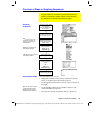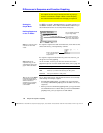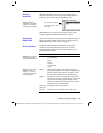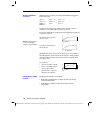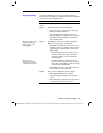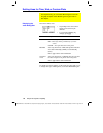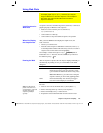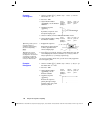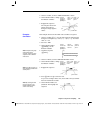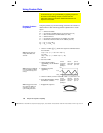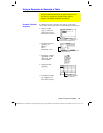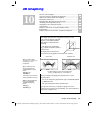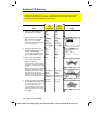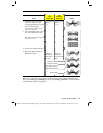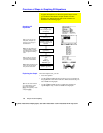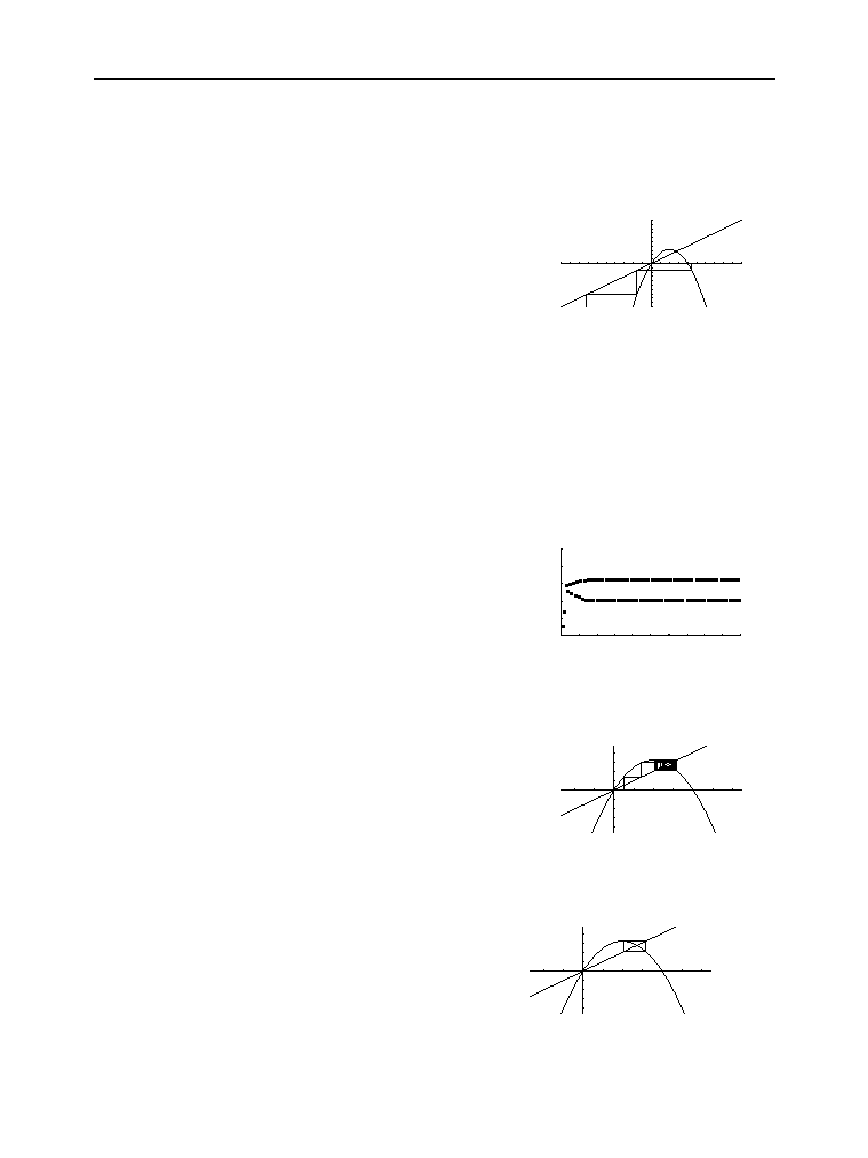
Chapter 9: Sequence Graphing 149
09SEQUEN.DOC TI-89/TI-92 Plus: Sequence Graphing (English) Susan Gullord Revised: 02/23/01 10:59 AM Printed: 02/23/01 2:14 PM Page 149 of 14
5. On the Y= Editor, set
Axes = WEB
and
Build Web = AUTO
.
6. On the Window Editor, change
the Window variables.
nmin=0. xmin=
ë
10. ymin=
ë
10.
nmax=10. xmax=10. ymax=10.
plotStrt=1. xscl=1. yscl=1.
plotStep=1.
7. Regraph the sequence.
The web plot shows how
quickly the sequence
diverges to large negative
values.
This example shows how the initial value can affect a sequence.
1. On the Y= Editor (
¥#
), use the same sequence defined in the
divergence example:
u1(n) = 3.2u1(n
ì
1)
ì
.8(u1(n
ì
1))
2
. Set initial
value
ui1 = 0.5
.
2. Set
Axes = TIME
.
3. On the Window Editor
(
¥$
), set the
Window variables.
nmin=1. xmin=0. ymin=0.
nmax=100. xmax=100. ymax=5.
plotStrt=1. xscl=10. yscl=1.
plotStep=1.
4. Graph the sequence
(
¥%
).
5. On the Y= Editor, set
Axes = WEB
and
Build Web = AUTO
.
6. On the Window Editor, change
the Window variables.
nmin=1. xmin=
ë
2.68 ymin=
ë
4.7
nmax=100. xmax=6.47 ymax=4.7
plotStrt=1. xscl=1. yscl=1.
plotStep=1.
7. Regraph the sequence.
8. Press
…
. Then use
B
to trace the web.
As you trace to larger values of
nc
, notice that
xc
and
yc
oscillate
between
2.05218
and
3.19782
.
9. On the Window Editor, set
plotstrt=50
. Then regraph the
sequence.
Example:
Oscillation
Note: Compare this graph
with the divergence
example. This is the same
sequence with a different
initial value.
Note: The web moves to an
orbit oscillating between two
stable points.
Note: By starting the web
plot at a later term, the
stable oscillation orbit is
shown more clearly.
u(n)
y=x
u(n
ì
1)
u(n)
n
u(n)
y=x
u(n
ì
1)
y=3.2x
ì
.8x
ñ
y=3.2x
ì
.8x
ñ



